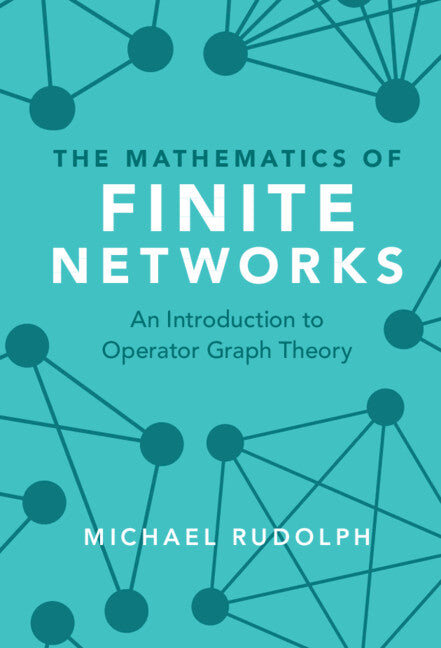Freshly Printed - allow 6 days lead
Couldn't load pickup availability
The Mathematics of Finite Networks
An Introduction to Operator Graph Theory
Offers an exact, non-asymptotic approach to studying large-scale features of finite networks that arise in real applications.
Michael Rudolph (Author)
9781107134430, Cambridge University Press
Hardback, published 12 May 2022
200 pages
23.5 x 15.7 x 2.4 cm, 0.68 kg
Since the early eighteenth century, the theory of networks and graphs has matured into an indispensable tool for describing countless real-world phenomena. However, the study of large-scale features of a network often requires unrealistic limits, such as taking the network size to infinity or assuming a continuum. These asymptotic and analytic approaches can significantly diverge from real or simulated networks when applied at the finite scales of real-world applications. This book offers an approach to overcoming these limitations by introducing operator graph theory, an exact, non-asymptotic set of tools combining graph theory with operator calculus. The book is intended for mathematicians, physicists, and other scientists interested in discrete finite systems and their graph-theoretical description, and in delineating the abstract algebraic structures that characterise such systems. All the necessary background on graph theory and operator calculus is included for readers to understand the potential applications of operator graph theory.
Preface: 1. Introduction
Part I. Operator Graph Theory: 2. Classical graph theory:The mathematical description of networks
3. Operator calculus:The mapping between vector spaces
4. Operator graph theory:The mathematics of finite networks
Part II. Applications: 5. Generating graphs
6. Measuring graphs
7. Transforming graphs
Afterthought
Bibliography
Index of notations
Index.
Subject Areas: Computer networking & communications [UT], Combinatorics & graph theory [PBV], Complex analysis, complex variables [PBKD], Discrete mathematics [PBD]


